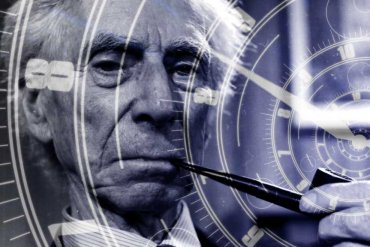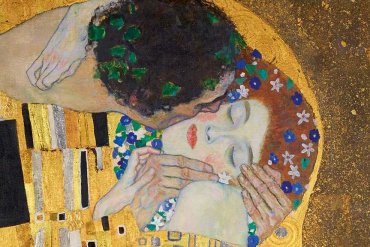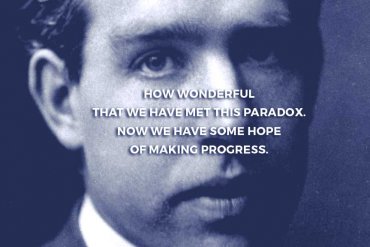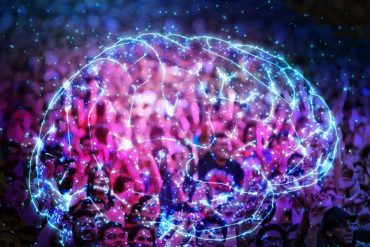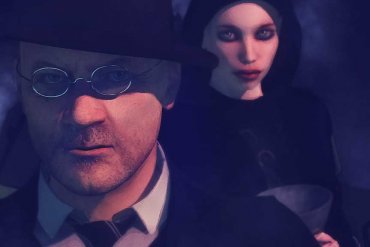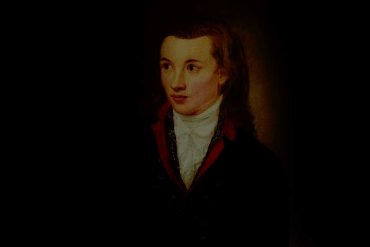Known to some as Sir Thomas More and to others as Saint Thomas More, the author of 1516’s Utopia—and inventor of the word utopia itself—lived from 1478 to 1535. He was a man of great conviction, deep Catholic faith, and remarkable rhetorical skill. It’s not often possible to trace the origins of an entire literary genre (Utopian and Dystopian Works...
In common usage, the word “paradox” often refers to statements that may be both true and false i.e. ironic or unexpected. Some paradoxes have revealed errors in definitions assumed to be rigorous, and have caused axioms of mathematics and logic to be re-examined. One well-known example is Zeno’s arrow paradox, where it appears to show that motion is impossible. Zeno...
Here is a subconscious double standard: Infinities of time seem a little different from infinities of space. It is natural to think that space extends out in all directions forever (or is this a culturally instilled belief?). Time is supposed to be infinite only in the future direction. We ask when time began but rarely where space began. The infinity...
The writer Aventinus stated that the Minne and the Minnesingers did not have anything to do with love and constant courting. That’s not entirely true. There are many enigmas and paradoxes concerning the Troubadour movement and their theme “LOVE” in the middle ages. They propagated the quest for selfhood, the birth of the individual. And the individual’s love is discriminative,...
Before the eighteenth century, people crudely measured time. Galileo used his own pulse as a measure. Today, our atomic clocks can measure a time interval as small as one-millionth of a second. (Though we have a word for one-trillionth of a second— pico second —we still have no way of accurately measuring it.) But no matter how finely calibrated our...
Understanding entails being able to detect an internal contradiction: a paradox. Are paradoxes “all in our heads” or are they built into the universal structure of logic? At first sight the idea of knowing what the universe is like, is absurd. American-Canadian neurosurgeon Penfield expanded brain surgery’s methods and techniques, including mapping the functions of various regions of the brain. Penfield’s...
Penfield’s classic brain experiments of the 1930s inspired a certain famous riddle, long since dubbed “brains in vats” by philosophy students. It goes like this: You think you’re sitting there reading this post. Actually, you could be a disembodied brain in a laboratory somewhere, soaking in a vat of nutrients. Electrodes are attached to the brain. And a mad scientist...
It was Rodin who stated that “Man never invented anything new, only discovered things.” Although it’s correct to say that certain symbols have been man-made for a particular purpose, it’s just as correct to argue that everything is somehow inspired by the natural world around us, by the forms of nature, plants, animals, the elements. Even a reaction against the...
Do you know what time it is? That question may perhaps be asked a lot more these days than ever. In our clock-studded modern society, the answer is only a peek away, therefore we are able to “blissfully” partition our days into ever smaller sized increments for ever more neatly scheduled jobs, assured that we will always know it really...
Ulva Naumann stated in Maier files: “Knowing Ultimate Truth is only possible when you’re able to embrace paradox.” Your logical mind may find this impossible, but life itself has no problem in being paradoxical regardless. Good fortune always seems to bring happiness, but deceives you with her smiles, whereas bad fortune is always truthful because by changing she shows her...
Paradoxes appear in all shapes and forms. Certain are uncomplicated paradoxes of reasoning with minimal potential for investigation, while others sit atop icebergs of full scale scientific disciplines. Many may be solved by mindful consideration of their hidden assumptions, one or more of them could be faulty. These, strictly stating, really should not be referred to as paradoxes at all,...
When it is exclaimed that contradictions may very well be true, numerous analytic philosophers will screw up their face into an appearance of discomfort, and say ‘But I just don’t see what it could be for a contradiction to be true’. They could mean numerous things by this. ‘See’ might just mean ‘understand’, by which case they might be complaining...



